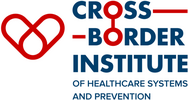Background and aim of the study
Despite the success of total hip replacement, with good results in terms of pain reduction and functional improvements, there is still no international standard regarding the care surrounding this procedure. As a result, treatment still greatly varies between countries. A good example of this are the Netherlands and Germany. In the Netherlands, the so-called 'fast-track' protocol is followed, where people are discharged to their home environment as soon as possible after surgery. Usually this is within one to three days after surgery. At home, people are on their own with, where needed, help from home care. In addition, following physiotherapy is recommended. However, physiotherapy is not included in the basic health insurance package. In Germany, on the other hand, people stay in hospital longer after surgery, often for about 10 days. After discharge from the hospital, people have the option to go to a rehabilitation center for three weeks for further rehabilitation. This is covered by health insurance. A previous study showed that in the short term, German patients' recovery is faster, but that in the long term there is no difference in the outcomes of Dutch and German patients. Also internationally, there are question marks about the effectiveness of physiotherapy following total hip replacement.
Another factor that seems to influence outcomes after total hip replacement according to the literature is patients' expectations, with higher expectations leading to better outcomes. On the other hand, the way care is designed may also influence patients' expectations, via the so-called placebo effect. Some patient characteristics may also influence outcomes.
The aim of the Hip Across study is to find out more about how, on the one hand, differences in care around total hip replacement in the Netherlands and Germany affect patients' expectations and final outcomes, and, on the other hand, how expectations and other patient characteristics influence these outcomes.
Method
The Hip Across study consists of two parts, interviews and questionnaires. With the interviews, we hope to identify what care looks like in practice, what differences exist, and how these differences affect patients' experiences before and after surgery. Both patients and healthcare providers will be interviewed. With the questionnaires, we will follow patients from before surgery to six months after surgery, asking about different types of expectations and functional outcomes. In this way, we hope to learn more about the effects over time.
Social importance
With the results of this study, we hope to learn more about the strengths and weaknesses of the care provided around total hip replacement in the Netherlands and Germany, in order to make it better and more efficient. The knowledge gained about the effect of expectations can potentially be further translated to other sections within healthcare.
Would you like to know more?
You can find this study here: bmjopen.bmj.com/content/13/4/e067499
Mooiweer Y, Seeber GH, Brütt AL, et al Influence of health system and patient characteristics on expectations and outcome in total hip arthroplasty patients in the Dutch-German border region: protocol for a mixed-methods prospective observational comparative study (hip across)BMJ Open 2023;13:e067499. doi: 10.1136/bmjopen-2022-067499



